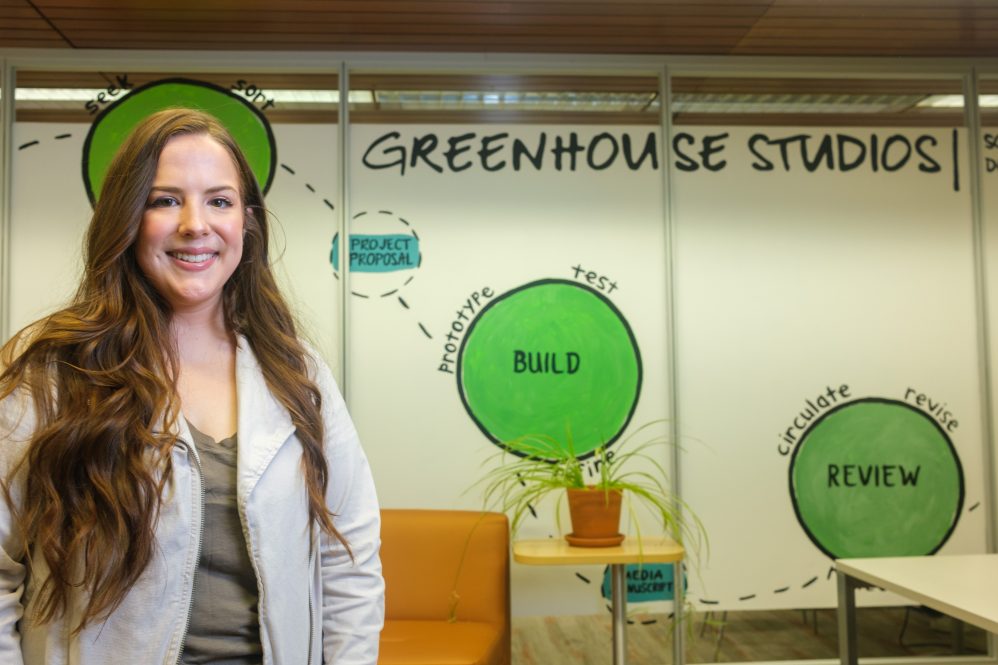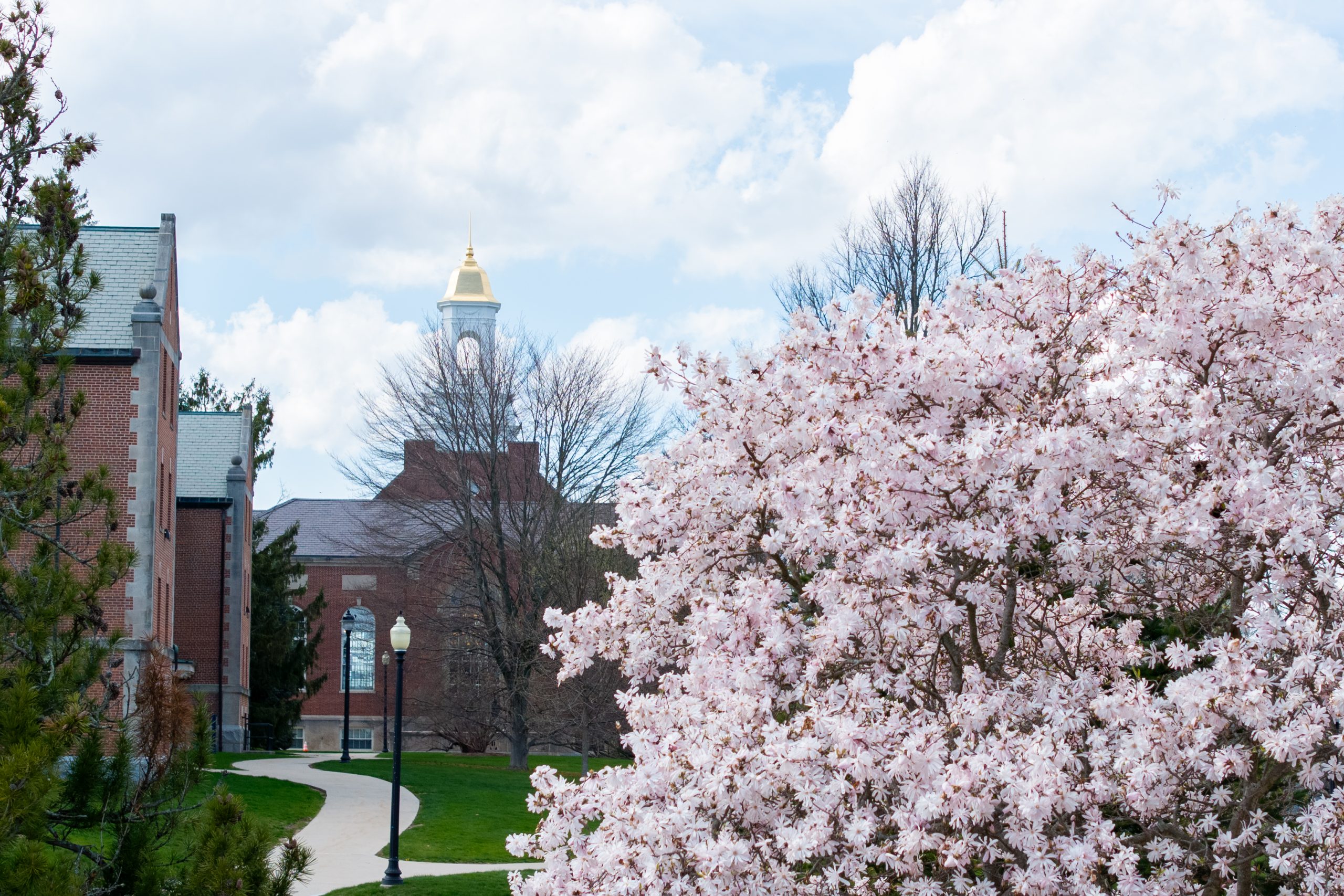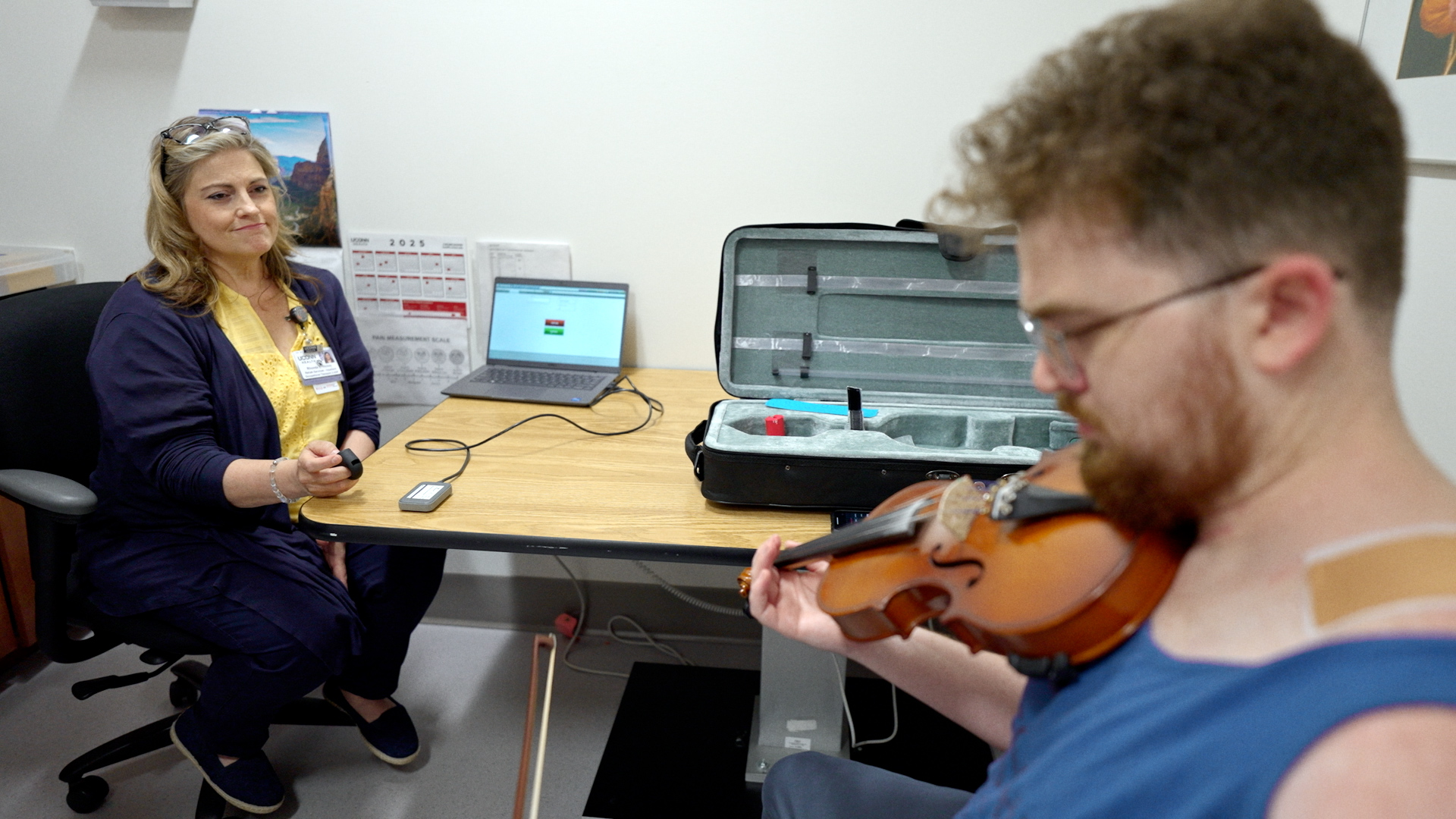As an undergraduate photography student and in the few years that followed, Alyssa McDonald ’22 MFA captured images of the state’s so-called “Quiet Corner,” telling its story through the imagination of her great-grandmother as a child during the Great Depression.
In her photographs, she reveals the undisturbed landscapes that now exist only in her great-grandmother’s memory.
Six years later and now armed with a graduate degree in Digital Media & Design, McDonald is looking to use her skills in interactive media to tell stories in new ways.
“I’m passionate about addressing women’s health issues through human-centered design, better connecting women to each other and to their own health,” the Vernon resident says, explaining that after her own health scare she learned other women’s stories and emotions paralleled hers in many ways.
She began to think about how she could rewrite their shared narrative and “ensure facing a breast condition or cancer was a journey not traveled alone.”
Her focus may have changed since those undergraduate days, but McDonald still is looking to tell stories, and now help others tell theirs.
Why did you choose UConn?
My undergraduate program was small in size, but big in heart. When I learned about the Digital Media & Design program at UConn, I already knew the type of program I would be entering. Being in smaller college programs, I have found, has allowed me to build supportive relationships with my peers and teachers. What also drew me to UConn was a fully funded graduate assistantship with Greenhouse Studios. This was an invaluable experience that allowed me to be a full-time student while gaining industry experience and supporting myself.
What’s your major and why did you choose it?
Interactive media, more specifically UX design, felt like a natural transition from photography because there are so many small, observable moments in everyday life that have the potential to be impactful and meaningful. For most of my life, I have noticed points of friction in the world around me and I’ve always had a desire to understand them and find a way to make them more enjoyable experiences! I approach UX design and photography similarly, but instead of using my lens, I use human-centered design processes to understand the heart of the people and places my work encompasses.
What are your plans after graduation?
Catching up on screen-free, quality time with my dog, Sydney.
What activities were you involved with as a student?
The highlight of my UConn experience has been working for Greenhouse Studios. We are a transdisciplinary research unit located inside the library. Since day one, they have placed strong emphasis on breaking down academic hierarchies and the well-being of all team members. I’ve always felt my individual sensibilities I brought to the table were valued, and I feel a strong sense of pride and ownership over work my teammates and I have produced.
How has UConn prepared you for the next chapter in life?
At UConn, I have learned my value and how to stand up for my needs, which has set the standard high for the next chapter of my life, as far as the type of people I want to surround myself with and the work culture I want to exist in.
What’s one thing that surprised you about UConn?
There’s a huge entrepreneurial spirit in the air at UConn. I attended the Innovation Quest workshops the past two years and they have been an amazing learning experience. Whether or not you have a product or business in mind, there is much to be learned. The mentorship sessions have really sharpened my critical thinking and helped me step outside my comfort zone.
Any advice for incoming first-year students?
I didn’t know what a first-generation college student was or that I was one until a few weeks ago, a BFA and an MFA later. That in and of itself speaks volumes to the experiences of first-generation college students. I’ve always felt slightly out of place in academic environments. I knew I was cut from a different cloth, but I never understood what that meant until recently. I wish I had known about the resources available to first-generation college students at UConn, not only to help bridge information gaps, but gaps in my own beliefs of what I was capable of. I would encourage all first-generation college students to not be afraid to ask questions and seek out resources that can help you realize your full potential.
Who was your favorite professor and why?
Some of the most impactful teachers I have ever met have been my classmates. Their input has always been extremely valuable to my work. If I had to name one professor at UConn who has stood out to me, it was my professor and advisor Heather Cassano. For the breadth of knowledge and critical insight she has, she is down-to-earth and humble, which can be hard to come by in academia. Her presence humanized our classroom and reinforced my own sense of belonging in that space.



